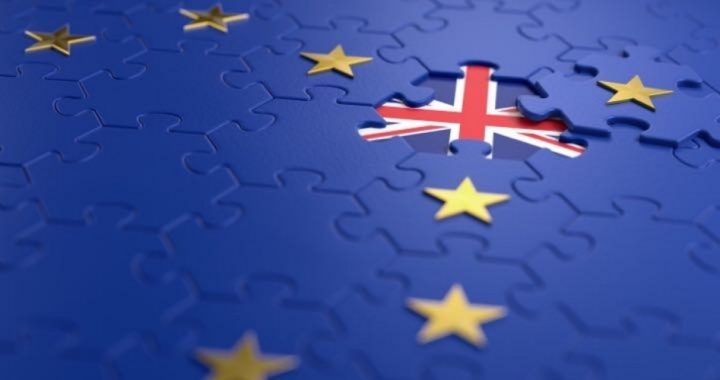
With the Supreme Court of the United Kingdom ruling that Prime Minister Boris Johnson’s decision to prorogue — or shut down — Parliament is unlawful, certain things are quite clear. All the talk about “democracy” by the “Remain” forces in Britain is highly hypocritical and the globalists who support Britain remaining in the European Union (EU) are willing to cause all sorts of political discord inside the U.K. to continue their attack upon the sovereignty of independent nations.
Seventy percent of the laws governing the British people are now dictated by the bureaucrats of the European Union, not by their own Parliament.
Johnson has been among the most vocal members of the Conservative Party favoring Brexit — the decision of a national referendum in 2016 for Great Britain to leave the super-state known as the EU — and the failure of Britain’s government to carry out the wishes of the British public in that national referendum highlights the rank hypocrisy of the Remain forces who say Johnson’s desire to carry out that decision is somehow undemocratic.
In other words, to the globalists who support continued British membership in the EU, democracy is the people doing what the globalist elites want done, not letting the people get their way.
Johnson responded to the U.K. Supreme Court’s ruling, stating, “I strongly disagree with the decision of the Supreme Court. [Though] I have the upmost respect for our judiciary, I don’t think it was the right decision. I think that the prorogation has been used for centuries without this kind of challenge.”
But the motivation for casting aside centuries of tradition was targeted by Johnson, when he added, “It is perfectly usual to have a Queen’s speech — that is what we want to do — but more importantly let’s be in no doubt there a lot of people who want to frustrate Brexit. There are a lot of people who want to stop this country coming out of the EU.”
Johnson said the court’s decision had created a political impasse over Brexit — scheduled to occur on October 31, with or without a “deal” on trade relations with the EU. “We have a Parliament that is unable to be prorogued, doesn’t want to have an election and I think it is time we took things forward.”
Predictably, pro-Remainers in and out of Parliament took the opportunity to demand Johnson quit as prime minister. Former Prime Minister John Major of the Conservative Party, who succeeded Margaret Thatcher after she was ousted for opposing further integration of Britain in the EU, even suggested that Johnson owed Parliament an apology.
Johnson, on the other hand, has called for new elections instead. Labour Party leader Jeremy Corbyn, an ardent supporter of remaining in the EU, wants Johnson to quit first — then call an election. To which Johnson retorted, “Jeremy Corbyn is talking out the back of his neck and he should have an election.”
President Donald Trump strongly supported Johnson in his desire to get Britain out of the EU on October 31 — one way or the other.
The Supreme Court decision has created a situation which allows the Remain forces to explore various maneuvers to keep the British in the EU — which was the whole point of the opposition to shutting down Parliament. There is really nothing for the House of Commons to do over the next month, but desperate Remain forces are doing everything they can to frustrate the will of the British public that voted in 2016 to leave the EU.
Not surprisingly, EU supporters such as Guy Verhofstadt of Belgium, who has called Brexit a “tragedy for Europe” called the U.K. Supreme Court “one big relief in the Brexit saga.”
But Johnson is not without his supporters within the Conservative Party. Tory Vice Chairman Andrew Bowie said today, “Conservative Party Conference is going ahead. Look forward to seeing members and supporters from across the U.K. in Manchester next week where we’ll re-affirm our position as the only party in the U.K. that seeks to uphold referendum results.”
Despite all the talk by Remain advocates about “democracy,” the truth is that they neither respect the will of the British public, as expressed in the 2016 Brexit vote, nor do they want to see new elections, so the public can reiterate its desire to maintain their national sovereignty and leave the EU. Corbyn, a socialist, and other anti-Brexit political leaders voted against an election earlier in September.
If an election were called, there would have to be at least 25 days of campaigning, and Brexit would probably occur during that campaign. Remain globalists would rather just use the time to frustrate the will of the British public.
In 1990, the Conservative Party voted to remove long-time Prime Minister Margaret Thatcher, mostly because of her opposition to the increased economic integration of Britain with Europe. “We have not successfully rolled back the frontiers of the state in Britain, only to see them re-imposed at a European level, with a European super-state exercising a new dominance from Brussels,” Thatcher said at the time, valiantly trying to avoid the destruction of Britain’s sovereignty.
This European super-state was sold as “free trade,” but it was really government-managed trade. What has happened in Britain, with the difficulties of the U.K. extricating itself from that increasingly authoritarian super-state, should serve as a warning to Americans, enamored with “free trade” agreements, like Trump’s USMCA.
Unfortunately, some who are strong believers in free enterprise have bought the bill of goods that these trade treaties are about liberty. They are not. Rather, they are more about regulation of the market. And many of the decisions reached by the bureaucrats in Brussels have little to do with trade, but are impositions of social policy. Americans who decry the interference from D.C. over social issues in the states and local communities will have to get used to similar decrees issued by international bureaucrats, if we enact managed trade deals of our own.
As Thatcher feared, these trade agreements are gutting national sovereignty, and it is true not only in Britain, but in our own USA.
Photo: Artystarty / iStock / Getty Images Plus
Steve Byas is a university history and government instructor and author of several books, including History’s Greatest Libels. He may be contacted at [email protected]



